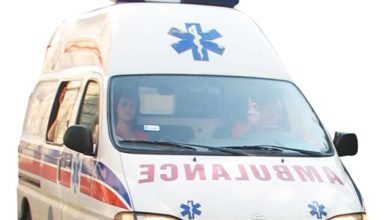By Nadia K. Brown
If this question strikes fear in your heart, guess what? You’re normal. However, as terrifying as it may seem, reflecting on this question may actually improve your application. Yes, you read that right.
Picture yourself sitting across from a panel of interviewers. One of them turns to you and asks: “What will you do if you’re not offered a spot in our program?” Once you get past your initial fear response, I urge you to really think about your answer. Not in a hypothetical, cursory sense, but in a soul-searching, “How would I pick up the pieces?” kind of way.
It’s a common interview question, but many applicants shy away from it, or only address it superficially in their prep. Although perhaps not be as juicy as researching ethical dilemmas, or polishing your plan to end all cancers, your answer to this question in an interview or personal statement, may just tip the balance in your favour.
Personally, I hadn’t thought about the question before my interviews. But this was my on-the-spot response:
Since I had also applied to graduate school and had an acceptance with a nice scholarship attached, I talked about the research I would do in rosy terms. I also added that I planned to travel, write stories, and work on my Spanish language skills. I left wondering whether I had answered the question a little too enthusiastically. Spoiler alert: it worked out well for me. But what the interviewers didn’t ask – and perhaps should have, is: “Why is this contingency plan important to you?”
Because it should be. And here’s why:
- If all your academic eggs are in one basket and things don’t go as planned, it can be devastating. This is the obvious reason to pay attention to what else is out there for you. If you don’t succeed with your application, it can feel like the world has dropped out from under your feet, and you have no idea what to do next. Have you applied to medical school more than once? If yes, then you know exactly what I mean. A solid contingency plan can be your saving grace. If medicine remains your true goal, it will sustain you while you wait. At the very least, it gives you a practical road map for how to pick up the pieces while you process what’s happened.
- Having a contingency plan shows the interviewers/admissions committee that you are thoughtful, realistic, and broadly-skilled; that you understand that there are various ways for you to showcase your talents, learn new skills, and contribute to the greater good. Bonus points for you!
- Having a concrete, realistic, and gratifying contingency plan in place before you hear the final decision, gives you peace of mind. This is arguably the most important reason to have one. Not only does it convince the admissions committee or interviewers that you are flexible and determined, but it convinces you, too. The right alternative can nurture facets of your personality that will help you in your journey, shape your career in unanticipated ways, and enhance your application the next time around. The added bonus? You won’t just be marking time; you will be living a productive chapter of your life.
So, how do you come up with a contingency plan that resonates with you? Because if it resonates with you, it will resonate with the admissions committee, too.
Start broadly. It may be difficult at first if, like most applicants, you have devoted several years (or longer) towards this one goal. But really think about it. And more importantly, concretize the process by writing out your options. Writing them out forces our brains to “go there”, which provides the true benefit of the exercise. For starters, try these broad headings:
- Education — University/college? Continuing education? A student exchange program? New language, or other concrete skill? Look up some options. Write out admission criteria, application deadlines/processes, and cost.
- Work – which cities could you see yourself working in? What type of job? Service? Retail? Skills based? Subscribe to some job boards and update your resume/CV.
- Volunteer – if you are fortunate enough to be able to consider this, think about where your interests lie: children? Acute care? Mental health? Homelessness? Working abroad with a spiritual or other outreach group? Write down specific organizations, including contact information.
Once you have a list of options, sift through them to find a few that truly resonate with you and are realistic based on your circumstances. Put in some time researching them so you know how you would activate your plan. Then own it. Talk about it, envision it, believe in it. And walk into your application process with your head held high. You’ve got this.



